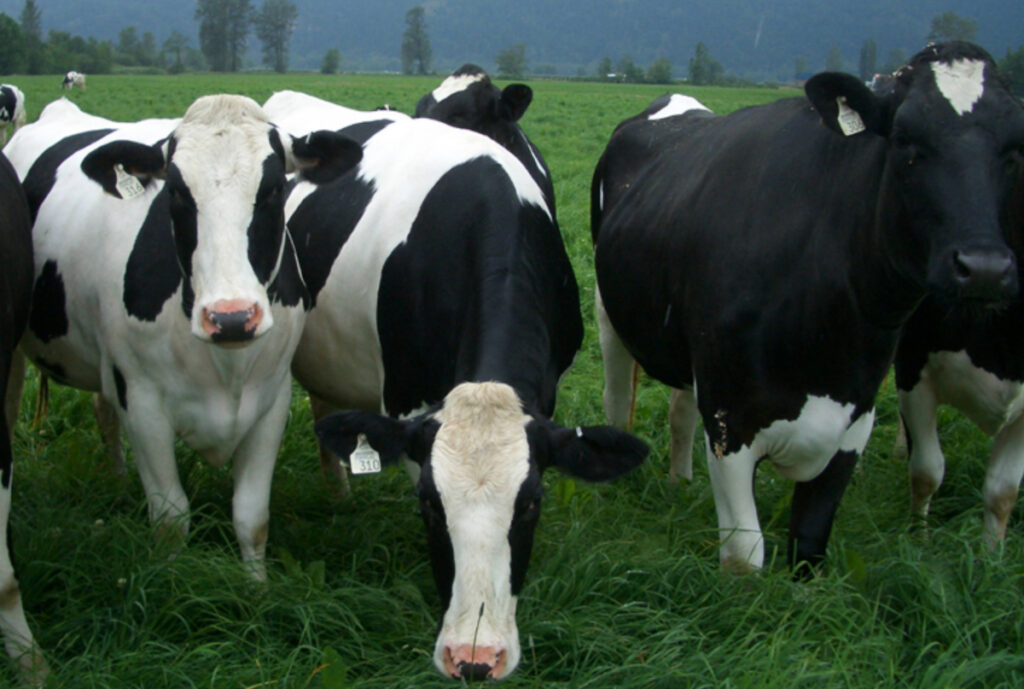For me, a day without dairy would be a dark day in history. I can live without a lot of things, but lordy me I need my morning latte, cheese and bread, and Greek yogurt in my spinach and berries smoothie.
I need my dairy, fruits and veggies, and grains, in that order. We need our farmers to produce more and more, but how often do we check in and ask, “Are you ok? What can I do to raise awareness about your struggles and your causes?”
The last time I visited a dairy farm, I was intrigued by how curious cows are; like little old ladies who need to know everything, they stopped chewing and immediately set out to see what’s the what. Some meandered over, some seemed to be sidling over, and others just outright trotted into the middle of the crowd of people getting off the tour bus. They were curious things, full of nosiness and entitlement amongst humans.
That day the cows were far away in in the distance, about the middle part of a huge field backdropped by some spectacular mountains. When the bus pulled in, they, as one, looked up from their grazing startled into stillness for a second. Once they arrived, they walked around the fence – the fence was only a few feet across a very wide field, not fencing in anything but more as a barrier from gravel driveway to field – and came right on up to check us out. A couple of cows broke off from the crowd and went into a barn to be milked, “as I am here” I guessed.
Of all the farming in all the world, the dairy farming sector is my favourite. It is a mutually agreed upon situation between bovine and human. These cows have total control over when they want to be milked. They know their own comforts above all udders and they expect someone to be there to take care of it when they have a need to release.
Dairy cows are well fed, they are genuinely loved, and they are protected from harm. But, when that harm comes in the form of “unprecedented natural disasters” farmers are left to face the storm and its bitter aftermath, mostly on their own. You see, life on earth is no longer “heading into an impeding climate-change crisis”, because we are already in the riptide of it. We are being tossed upside down and all around, and farmers along with their charges, living on the outskirts of urban development, are experiencing the devastations firsthand.
During November 2021, heavy rainfall led to massive flooding in British Columbia, resulting in widespread damages that left farmers facing an impossible mountain of challenges. Farms sunk below floodwaters washing away barns and milking parlors, feed supplies were disrupted, milk transportation was halted, and large quantities of milk were dumped.
Fast forward to 2023 and the phrase in every reporter’s broadcast these days is “These unprecedented weather patterns”. They, in their own fashion, are trying to raise immediate awareness about climate change and its impact on extreme weather events. But, let’s not only talk about the obvious…we are all here experiencing extreme weather patterns, thank you very much.
Let’s talk about how these “unusual weather patterns” are actually decimating farms and livestock, and in turn our farmers who are literally the final frontier between hunger and food security here in Canada.
All Media, running the gamut from traditional to bloggers, to Tick-Tock creators, must stay on top of this topic. We have to keep on raising awareness about the tenuous infrastructure in place for the next natural disaster. BC agriculture and aquaculture industries need stronger, better, sustainable infrastructures for a food-secure future. So lets hashtag our way into better infrastructure, after all It is only the public’s involvement that ever speeds up the process of change.
The water war may have already started…
In simple terms, too much rain, or even a spring freshet, can cause floods because the water is coming too fast to allow the ground to absorb it. After floods, lots of plants grow, but if these plants dry out and there’s a spark from human or nature, there will be a wildfire. If it doesn’t rain for a long period after that, it then leads to a drought.
With the depletion of water resources due to climate change, comes the inevitable competition for water access right now. Between climate disasters, agricultural water needs, and spawning salmon in the rivers, there is little to none left for growing food for cattle.
We must not forget with every problem that exists on earth, there are experts and accredited problem solvers who thrive on creating long term solutions. There are countless experts in the Dairy field begging to be herd (Hehe, get it?).
These folks are ready to create and implement long term solutions and we all know that with collaboration comes solutions, so maybe it is time we take the decision making out of our Reactive-government political boardrooms and into the fields where change must be implemented, today.
I wonder if can we start a campaign to educate urbanites on what it takes to bring us morning latte, every day without fail. Some appreciation would be much appreciated, I think?
#DairyAppreciation #MyMorningLatte
